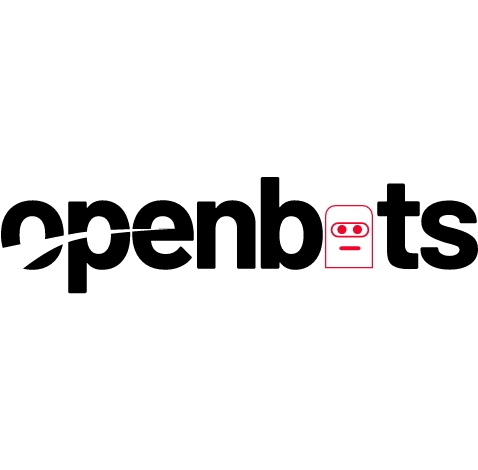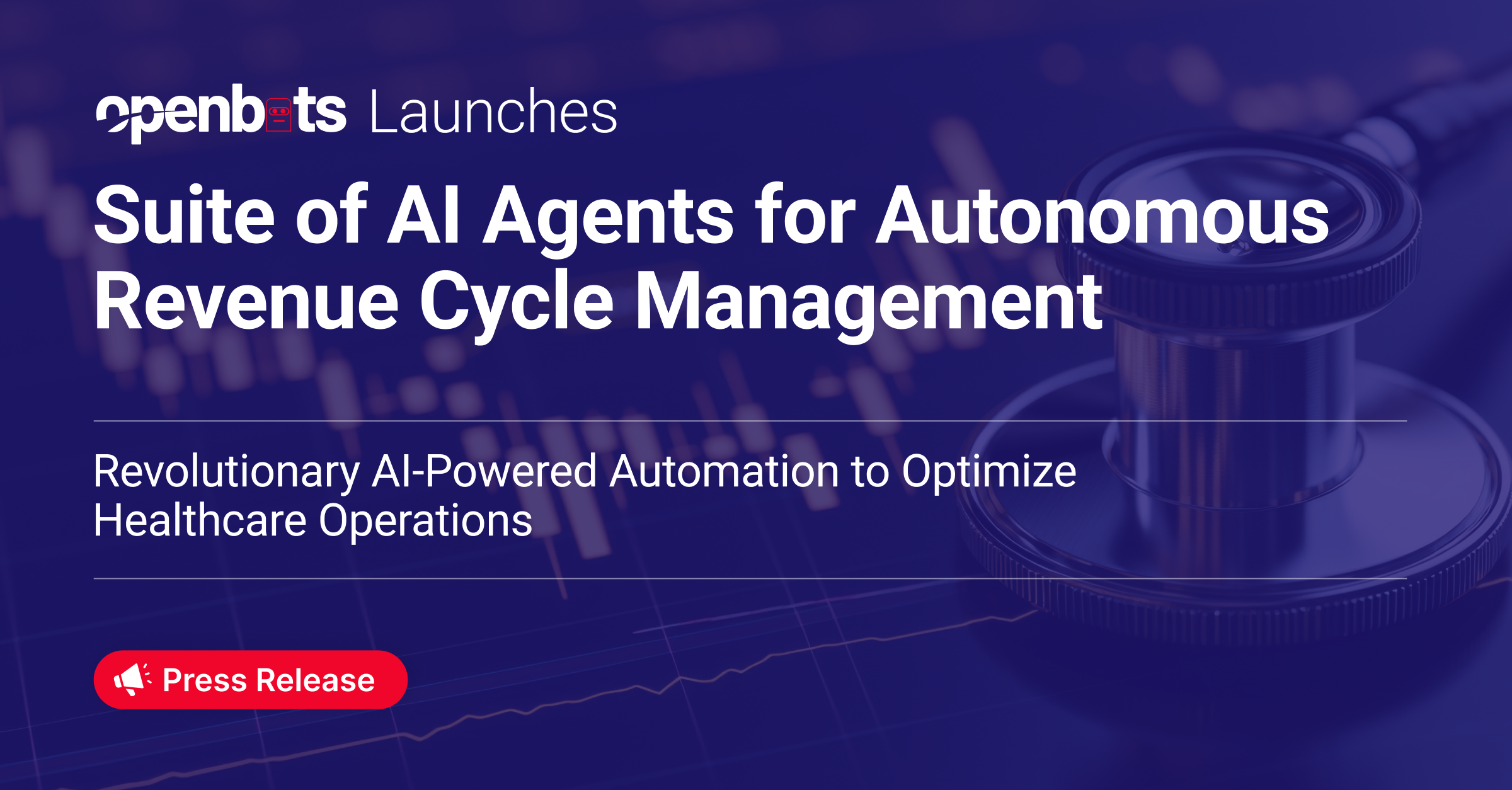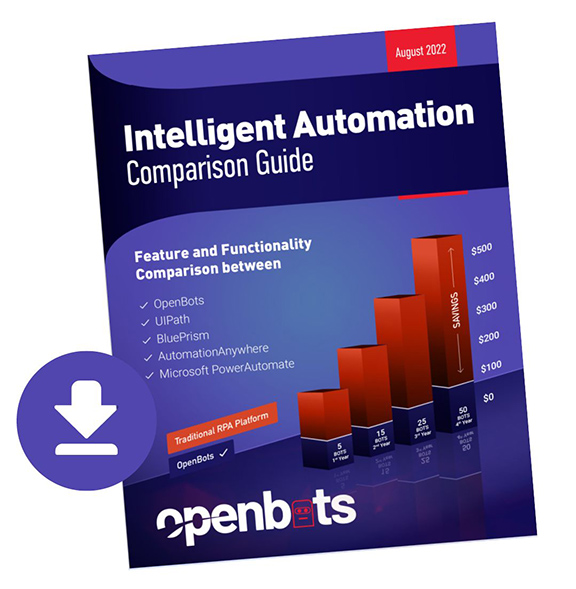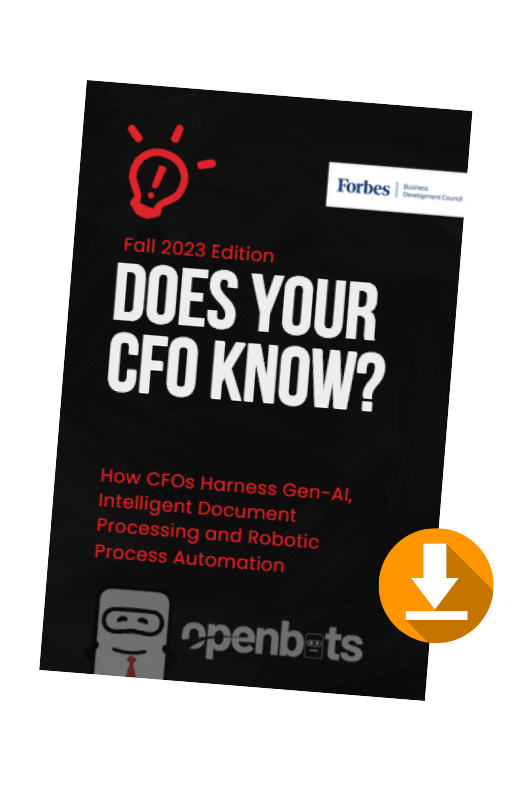Healthcare Automation Technology
 by
OpenBots - March 28, 2023
by
OpenBots - March 28, 2023

About OpenBots
OpenBots is a business process automation platform that processes documents, automates tasks, creates forms, and builds end-to-end workflows. It maximizes the full potential of AI and GPT technology, and its zero-bot licensing makes it the most affordable option on the market.
Recent Posts
Related Blog Posts

Agentic AI’s Untapped Power in Streamlining Prior Authorizations
The original goal of prior authorization was to help keep healthcare costs down, not to get in the way of […]

OpenBots Launches Suite of AI Agents for Autonomous Revenue Cycle Management
OpenBots Inc. is transforming healthcare financial operations with the launch of its AI-powered suite of eight Autonomous Revenue Cycle Management (RCM) Agents…

Agentic AI in Banking: Ten Transformative Processes to Automate
The banking industry is changing rapidly with the tech revolution, and modern technologies like Agentic AI are at the centre […]





